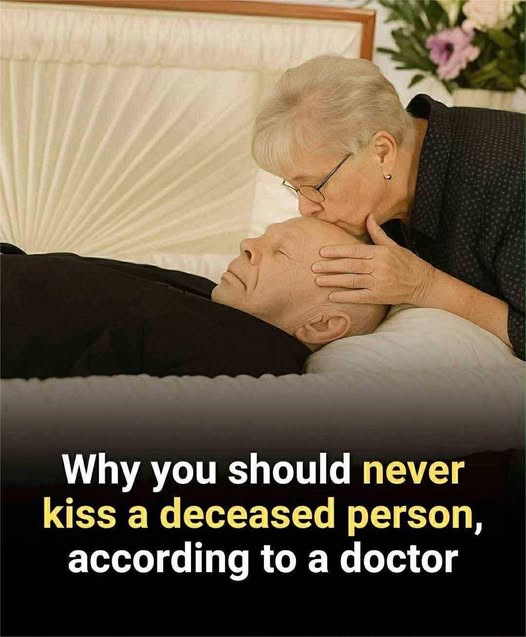For many people, the final goodbye to a loved one feels incomplete without a kiss on the forehead or lips. While it may seem like a tender gesture of love and respect, doctors strongly advise against kissing someone who has recently passed away. Here’s why.
1. Risk of Bacterial Infection
After death, the body’s immune system shuts down. This allows bacteria inside the body to multiply rapidly. Some of these bacteria can transfer to the living if there is direct contact with the mouth or skin.
2. Possible Exposure to Contagious Diseases
If the deceased suffered from certain infections or viruses before death, there’s a chance they could still be present in body fluids. Though the risk is lower than when the person was alive, doctors warn that exposure is still possible.
3. Chemical Exposure from Embalming
In cases where the body has been prepared by funeral staff, embalming fluids may be present on the skin. These chemicals are not safe to touch—let alone kiss.
4. Emotional and Psychological Effects
Grieving loved ones may feel the urge to kiss the deceased as a final goodbye, but some experts warn it can deepen trauma. Seeing and physically interacting with the body may make it harder for some to move forward with the grieving process.
Bottom line: While the intention is heartfelt, doctors recommend finding safer ways to say goodbye—like holding the hand, speaking softly to the loved one, or simply being present in the moment.
